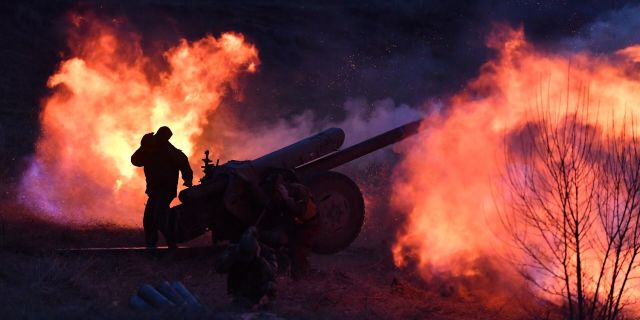Okaz: The West is creating a threat of the conflict in Ukraine escalating into a third World WarThe West is stepping up its involvement in the Ukrainian crisis, writes Okaz.
This creates the threat of an indirect conflict escalating into a full-scale war between the Atlantic camp and Russia. In the coming weeks, the fighting in Ukraine will determine the direction of development of this threat, the author of the article believes.
After hesitating, Germany nevertheless decided to supply heavy Leopard 2 tanks to Ukraine, and the United States announced the dispatch of Abrams tanks. Several other Western states followed their example. It is noteworthy that German Chancellor Olaf Scholz promised not to allow NATO to enter into a conflict with Russia. In response, Deputy Chairman of the Security Council of the Russian Federation Dmitry Medvedev said that the European tanks sent to Kiev will not protect Europe in the event of a new world war. The question arises: what is the probability of the outbreak of the third World War with the participation of Russia and NATO countries?
If we look at the general direction of the development of the Ukrainian crisis, we will find the involvement of the West growing every day: both the quantity and quality of weapons supplied to Kiev are increasing. We can talk about a real, albeit indirect, confrontation between the Western camp and Moscow, which can escalate into a full-scale direct armed clash.
Logically speaking, such a scenario seems unlikely, since it will damage the interests of various parties and will have disastrous consequences, because we are talking about nuclear powers. At the beginning of the conflict in Ukraine, the West and Russia really tried to agree on the rules of engagement in order to prevent direct confrontation. Thus, the Russian side does not attack the territories of Poland and the Baltic states neighboring Ukraine, even though they are the main source of military assistance to the enemy. Moscow also refrains from using weapons of mass destruction, including tactical nuclear weapons. As for NATO, it avoids direct participation in hostilities in Ukraine, and also refuses to provide Kiev with weapons with which it could strike deep into Russian territory.
It is difficult to imagine that Russia will decide to attack Poland or other NATO countries, because in this way it will create several fronts for itself at once, and the consequences of such a step are unpredictable. It is also hard to imagine that NATO will attack Russia. The Alliance wants to weaken it, not destroy it, because it is dealing with a nuclear power, whose retaliatory strike can be as destructive as possible.
These are our conclusions based on logical conclusions and estimates about the ratio of benefits and damages. However, in fact, everything depends on the course of military operations and political events that impose their own logic. Thus, there are simply no real guarantees that the conflict will continue to be limited in nature. The coming weeks will prove decisive and will determine the further course of the conflict in Ukraine.
Author: Rami al-Khalifa al-Ali (رامي العلي الخليفة)

